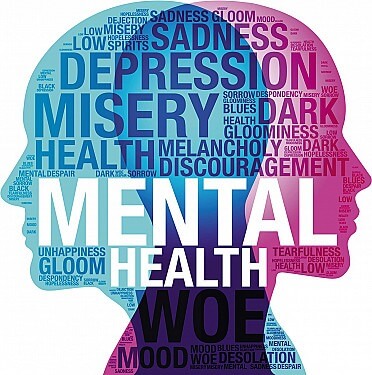Picture this: You’re sipping your morning coffee, scrolling through your phone, when you see yet another concerning social media post from your grown child. Your stomach drops like a stone thrown into still water. The person you raised with such care and intention seems to be making one questionable decision after another, and you’re left wondering where you went wrong—or more importantly, what you can do now.
If you’re nodding along, you’re far from alone in this parenting journey. The transition from raising a child to loving an adult who happens to be your offspring is like trying to navigate a ship through uncharted waters. You want to help, but you’re not sure if throwing them a life preserver will actually teach them to swim—or just keep them dependent on your rescue efforts.
The reality is that parenting doesn’t end when your child turns eighteen. In fact, nearly half of parents with a child older than 18 provide them with at least some financial support, according to recent research. This statistic reveals just how common it is for parents to remain deeply involved in their adult children’s lives, especially when those children are struggling with decision-making.
But here’s the thing about watching your grown child make bad decisions—it’s one of the most heart-wrenching experiences a parent can face. You’ve spent years teaching, guiding, and protecting, only to watch them stumble through choices that seem to fly in the face of everything you’ve tried to instill. Whether it’s career missteps, relationship disasters, or financial fumbles, each poor choice feels like a reflection of your parenting, even when logic tells you otherwise.
The Emotional Rollercoaster of Parenting Adults

Let’s be honest about something most parenting blogs won’t tell you: watching your adult child make poor choices can feel like emotional whiplash. One day you’re proud of their independence, and the next you’re lying awake at 2 AM wondering if you should intervene or step back. This internal tug-of-war between wanting to protect and needing to let go is perhaps the most challenging aspect of parenting grown children.
Research from Pew Research Center shows that most parents say they feel proud (83%) and hopeful (75%) extremely or very often about their young adult children, while far smaller shares say they frequently feel worried (22%) or disappointed (4%). However, these statistics don’t capture the complex emotions that arise when your grown child makes bad decisions. Pride and worry can coexist in the same heart, creating a cocktail of feelings that’s both exhausting and consuming.
The challenge intensifies when you realize that your grown child’s poor choices aren’t just affecting them—they’re creating ripple effects throughout your family. Maybe their financial struggles mean they’re asking for money again, or their relationship drama is causing tension at family gatherings. Perhaps their career instability is making you question whether you should offer them a place to stay, knowing that saying yes might enable their poor decision-making patterns.
Think of your heart as a garden that you’ve carefully tended for decades. You’ve planted seeds of wisdom, watered them with love, and protected the growing plants from harsh weather. Now, you’re watching your grown child trample through that garden, and it’s natural to feel protective of both the garden and the person doing the trampling.
Understanding Why Adult Children Make Poor Choices
Before we dive into solutions, it’s crucial to understand why capable, intelligent adults sometimes make decisions that leave their parents scratching their heads. The truth is, poor decision-making in adulthood often stems from a complex web of factors that go far beyond simple rebellion or ingratitude.
First, consider the developmental reality: the human brain doesn’t fully mature until around age 25, particularly the prefrontal cortex responsible for executive decision-making and impulse control. This means that even your 22-year-old college graduate might still be operating with somewhat limited decision-making capabilities, despite appearing fully grown and independent.
Additionally, today’s young adults face unprecedented challenges that previous generations didn’t encounter. Economic uncertainty, social media pressure, delayed life milestones, and a rapidly changing job market all contribute to a landscape where making “good” decisions has become increasingly complex. Half of parents say they disagree with their children about their financial choices at least sometimes, and about four-in-ten (41%) say they disagree with their children about their career or job situation.
Sometimes, what appears to be a “bad” decision from a parent’s perspective might actually be your grown child’s attempt to assert independence or explore their identity. The career path that seems unstable to you might represent their passion. The relationship you find concerning might be teaching them valuable lessons about boundaries and self-worth.
However, there are times when poor decision-making patterns indicate deeper issues. Mental health struggles, addiction, unresolved trauma, or simply a lack of real-world experience can all contribute to a pattern of choices that seem self-destructive or counterproductive.
When Your Grown Child Makes Bad Financial Decisions

Money matters often become the most visible and immediate concern when your grown child makes bad financial decisions. Whether it’s racking up credit card debt, making impulsive purchases, or repeatedly asking for financial bailouts, these situations can strain both your relationship and your own financial security.
When your grown child makes bad financial decisions, it’s like watching someone you love walk repeatedly into the same wall. The frustration is compounded by the fact that money mistakes often have long-lasting consequences that can affect their ability to achieve independence, buy a home, or start a family.
Recent data shows that some 45% of adults ages 18 to 29 (with at least one living parent) say they have received a lot of or some financial help from their parents in the past 12 months. While some of this support is understandable given current economic realities, it becomes problematic when it enables continued poor financial decision-making.
Consider Sarah, whose 26-year-old son repeatedly maxes out credit cards on expensive gadgets and dining out, then calls her in tears asking for help with rent. Each time she bails him out, she’s inadvertently teaching him that someone else will always catch him when he falls. The short-term relief of helping becomes a long-term obstacle to his financial maturity.
The key to how to handle your grown child makes bad decisions regarding money is establishing clear boundaries while still maintaining your relationship. This might mean offering to help them create a budget instead of handing over cash, or agreeing to pay for specific necessities like groceries while refusing to cover entertainment expenses.
Financial mistakes often serve as some of life’s most effective teachers, but only if the person making them experiences the full weight of the consequences. When parents consistently rescue their grown children from financial trouble, they’re essentially preventing this natural learning process from occurring.
Setting Boundaries That Preserve Relationships
The art of setting boundaries with grown children who make poor choices is like learning to dance—it requires grace, timing, and practice. Too rigid, and you risk damaging your relationship; too flexible, and you enable continued poor decision-making.
Effective boundaries with adult children start with clarity about what you will and won’t do. This means having honest conversations about your expectations and limits before crises arise. For instance, you might say, “We love you and want to support you, but we won’t continue to provide financial assistance for non-essential expenses. However, we’re happy to help you find resources for budgeting or career counseling.”
The boundary-setting process also requires you to examine your own motivations. Are you saying yes to requests for help because you genuinely believe it’s in their best interest, or are you doing it to alleviate your own anxiety about their struggles? Sometimes, our desire to fix our children’s problems stems more from our discomfort with their pain than from their actual need for assistance.
Remember that boundaries aren’t walls—they’re more like garden fences that define where your responsibility ends and theirs begins. A well-placed boundary can actually strengthen your relationship by eliminating the resentment that builds when you feel taken advantage of or when they feel judged for their choices.
One effective approach is to separate the person from their behavior. You can love your grown child unconditionally while disapproving of their choices. This distinction allows you to maintain emotional connection even when you’re not willing to enable their poor decision-making patterns.
The Financial Strain on Parents

Let’s address the elephant in the room: supporting grown children who make poor choices can be financially devastating for parents, particularly those approaching or in retirement. For parents, however, supporting grown children can be a substantial drain at a time when their own retirement security is at risk.
The financial pressure becomes even more challenging when parents feel guilty about not helping or worry that saying no might damage their relationship with their child. This emotional manipulation—whether intentional or not—can lead parents to make financial sacrifices that jeopardize their own future security.
Consider the long-term implications of repeatedly bailing out your grown child. Every dollar you spend covering their poor choices is a dollar not invested in your retirement, not saved for emergencies, or not available for your own needs. Additionally, you’re modeling financial behavior that teaches them that money problems can always be solved by asking someone else for help.
Creating a family financial plan that includes specific provisions for helping adult children can provide structure and prevent emotional decision-making in crisis moments. This might include setting aside a specific amount annually that you’re willing to contribute to your grown child’s expenses, with the understanding that once that money is gone, no additional help will be provided until the following year.
Communication Strategies That Actually Work
Talking to a grown child about their poor choices requires the delicate balance of a tightrope walker. You want to express concern without sounding judgmental, offer support without enabling, and maintain connection without sacrificing your own well-being.
Start by choosing the right time and place for serious conversations. Avoid discussing sensitive topics during family gatherings or when emotions are running high. Instead, opt for private, one-on-one conversations in neutral settings where both of you can speak freely without feeling defensive.
Use “I” statements to express your concerns rather than “you” statements that can sound accusatory. For example, instead of saying, “You always make terrible financial choices,” try “I feel worried when I see you struggling with money, and I’d like to understand how I can best support you without enabling dependency.”
Listen more than you speak. Sometimes, your grown child’s poor choices stem from feelings of inadequacy, depression, or confusion about their life direction. Creating space for them to express these underlying issues can be more valuable than offering solutions or criticism.
Ask open-ended questions that encourage reflection rather than defensiveness. Questions like “What do you think would happen if you tried a different approach?” or “How do you see this situation working out in the long term?” can help them think through consequences without feeling lectured.
Building Your Support Network
Parenting grown children who make poor choices can feel isolating, especially when friends with successful adult children don’t seem to understand your struggles. Building a support network of people who truly get what you’re going through is essential for your emotional well-being.
Consider joining support groups for parents of struggling adult children, either in person or online. These groups provide a safe space to share experiences, gain perspective, and learn coping strategies from others facing similar challenges. Sometimes, just knowing you’re not alone in this struggle can provide tremendous relief.
Professional counseling can also be invaluable, both for individual support and family therapy sessions. A skilled therapist can help you navigate the complex emotions involved in watching your grown child struggle while also providing practical strategies for setting boundaries and improving communication.
Don’t underestimate the value of maintaining your own friendships and interests outside of your child’s struggles. It’s easy to become so consumed with worry about your grown child that you lose sight of your own life and relationships. Staying engaged in activities you enjoy and maintaining connections with supportive friends helps prevent you from becoming overly enmeshed in your child’s problems.
Protecting Your Mental Health

The stress of dealing with a grown child who consistently makes poor choices can take a significant toll on your mental health. Chronic worry, guilt, and frustration can lead to anxiety, depression, and physical health problems if left unaddressed.
Recognize that you cannot control your grown child’s choices, no matter how much you love them or how clearly you can see better alternatives. This acceptance isn’t about giving up—it’s about focusing your energy on what you can control: your responses, your boundaries, and your own well-being.
Practice self-compassion when you feel like you’ve failed as a parent. The truth is that good parents can raise children who still make poor choices as adults. Your child’s decisions are ultimately their own, influenced by countless factors beyond your parenting, including their personality, life experiences, mental health, and social environment.
Develop healthy coping strategies for managing your worry and stress. This might include regular exercise, meditation, journaling, or engaging in hobbies that bring you joy. Remember that taking care of yourself isn’t selfish—it’s necessary for your ability to support your family in healthy ways.
When Professional Help Is Needed
Sometimes, the pattern of poor decision-making in grown children indicates issues that require professional intervention. Recognizing when to suggest or insist on professional help can be crucial for your child’s well-being and your family’s stability.
Signs that professional help might be needed include substance abuse, mental health crises, legal troubles, abusive relationships, or a complete inability to function independently despite having the necessary skills and resources. In these situations, your love and support alone may not be sufficient to create positive change.
Approaching the topic of professional help requires sensitivity and timing. Rather than demanding they seek help, consider expressing your observations and concerns, then asking how they think the situation might improve. Sometimes, offering to help them find resources or even attend initial appointments with them can make professional help feel less threatening.
Remember that you cannot force a grown child to accept professional help unless they pose an immediate danger to themselves or others. However, you can make acceptance of professional help a condition for continued financial or housing support.
Hope for the Future
While it’s painful to watch your grown child make bad decisions, it’s important to remember that people can and do change, often in their own time and in their own way. Many adults who struggled with poor decision-making in their twenties go on to build successful, fulfilling lives once they mature and gain experience.
Your role as a parent doesn’t end when your child becomes an adult, but it does evolve. Instead of trying to prevent them from making mistakes, your job becomes supporting them as they learn from those mistakes while protecting your own well-being and financial security.
Sometimes, the most loving thing you can do for a grown child who makes poor choices is to step back and allow them to experience the natural consequences of their decisions. This doesn’t mean abandoning them, but rather shifting from rescuing to encouraging, from solving to supporting.
Moving Forward with Love and Boundaries
As we wrap up this journey through the complex terrain of parenting grown children who make poor choices, remember that love and boundaries aren’t opposites—they’re partners in the dance of healthy relationships. Just as a garden needs both sunshine and rain to grow, your relationship with your grown child needs both unconditional love and clear limits to thrive.
The path forward isn’t about fixing your child or controlling their choices. It’s about finding peace with your role as a loving parent who has done their best, while creating space for your grown child to learn, grow, and ultimately become the person they’re meant to be. Some lessons can only be learned through experience, and some growth only happens through struggle.
When your grown child makes bad decisions, remember that their story isn’t over. Each poor choice is an opportunity for learning, each consequence a chance for growth, and each day a new beginning. Your job isn’t to prevent their pain but to love them through it while maintaining your own emotional and financial health.
Take heart in knowing that countless parents before you have navigated these challenging waters and emerged with stronger relationships and wiser, more independent adult children. Your love, combined with healthy boundaries and realistic expectations, creates the foundation for both your grown child’s eventual success and your own peace of mind.
The journey of parenting never truly ends—it just changes form. Embrace this new phase with both open arms and firm boundaries, trusting that love, time, and natural consequences have a way of working together to create the growth and change that lectures and rescue missions never could.



